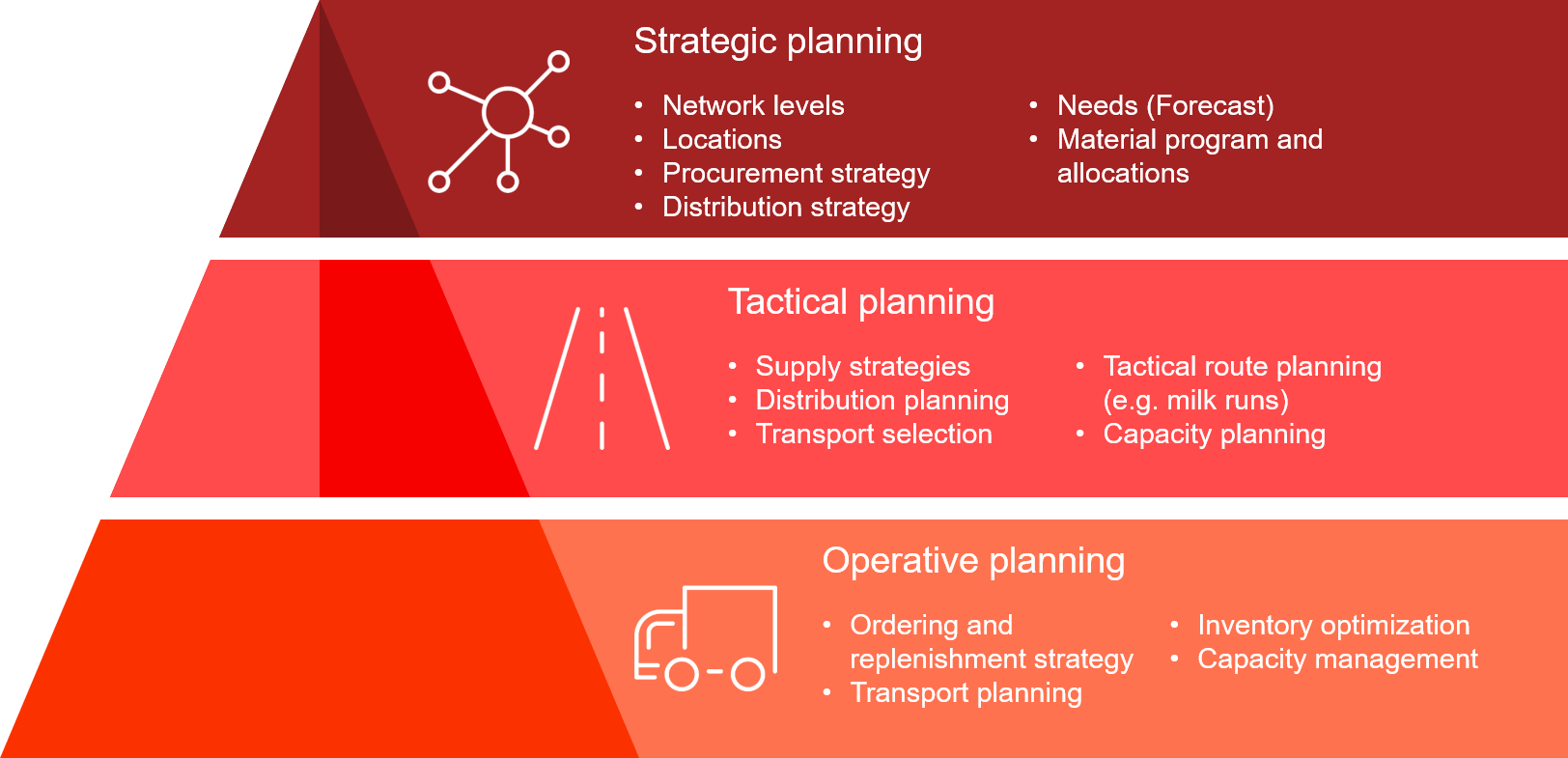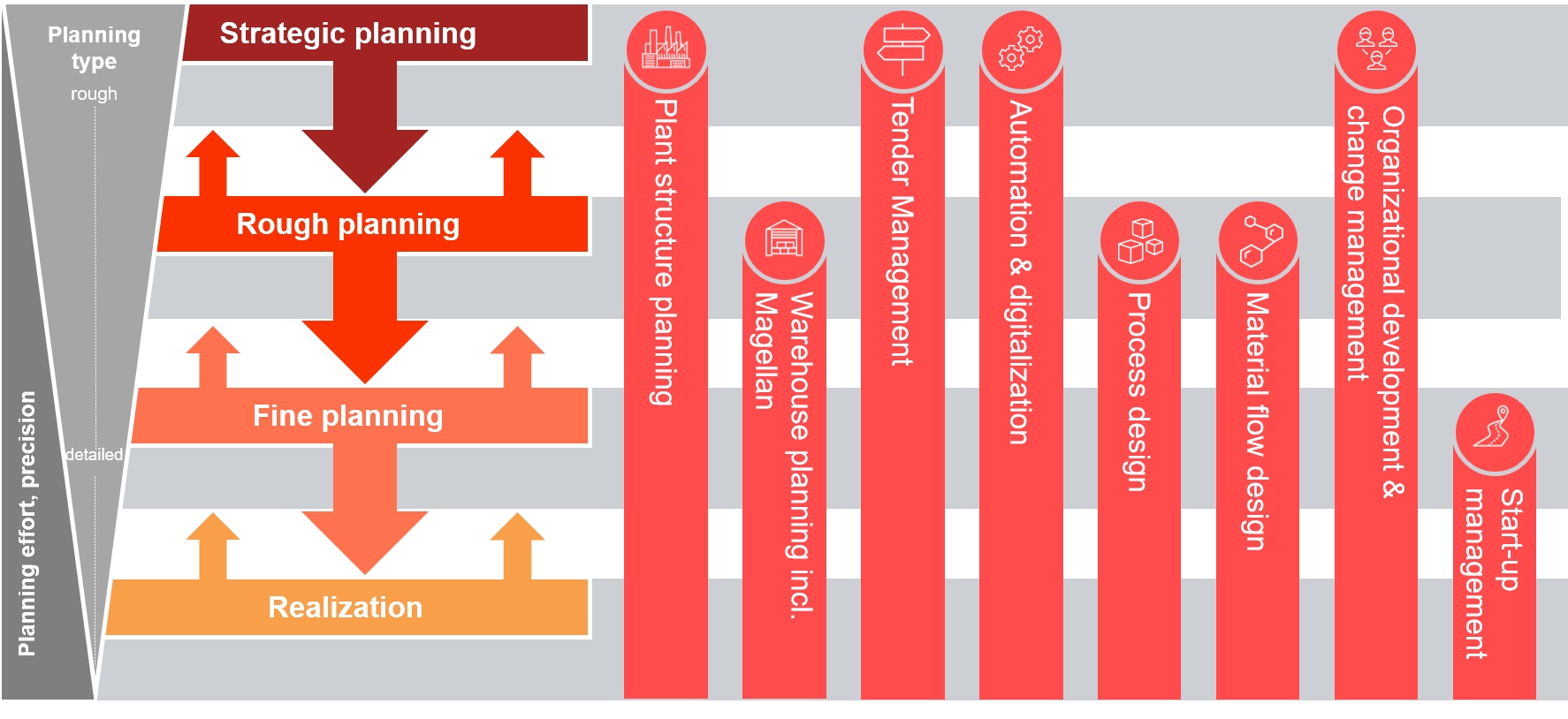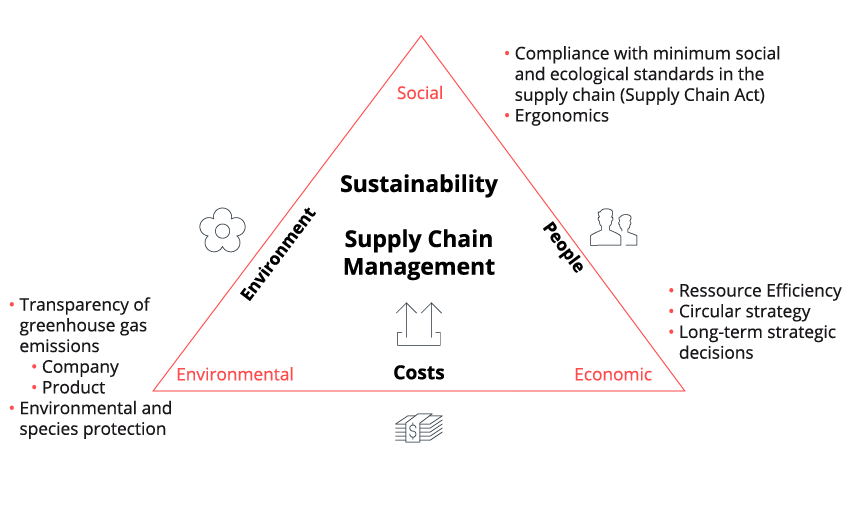Locations, structures, and systems that have developed historically make implementing current automation and digitalization trends more difficult, hindering efficient processes and a sustainable material flow. To manage these problems, many companies focus on structural, process, and IT planning and implementation. However, the resulting changes within the organization are frequently underestimated and stand in the way of successfully achieving the planned goals.
As an integrated process and IT consulting company, valantic supports companies as part of logistics planning & logistics services in achieving their set goals quickly and in a results-oriented fashion: from strategic planning to realization and start-up.
We formulate realistic warehouse planning solutions with our own 2D/3D visualization software MAGELLAN. In addition to visualizing warehouse planning, simulation and optimization of internal material flow design and its positioning is a central component. This way, changes and new scenarios can be integrated quickly and flexibly. Furthermore, we design and realize customized organizational development including appropriate change management.




